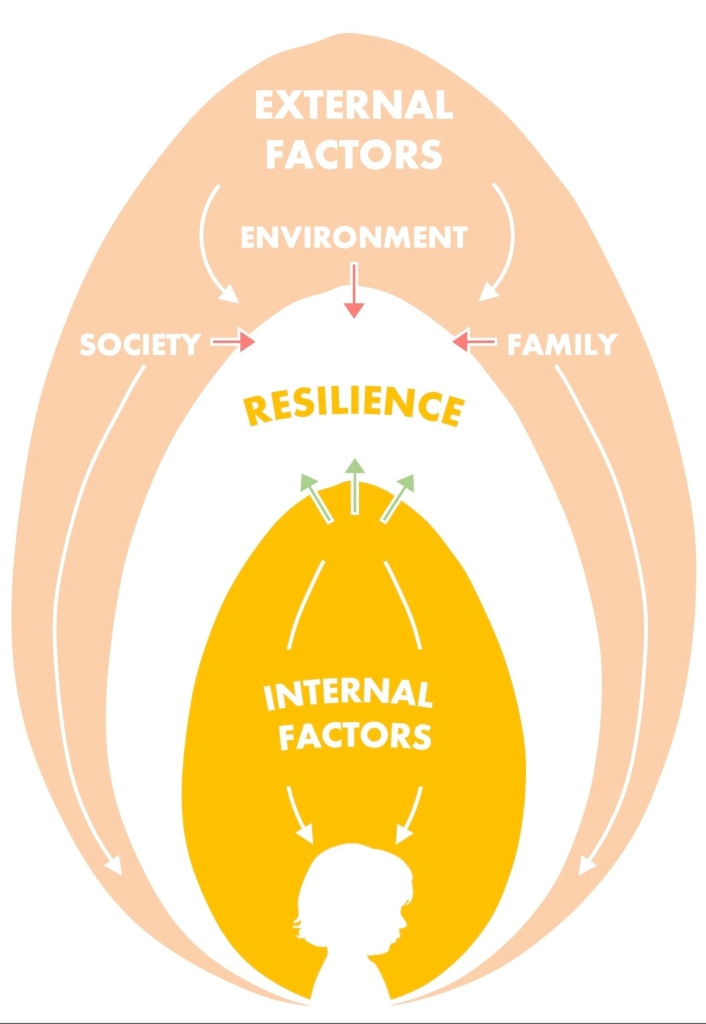Correct biochemical balance in our children help increase their resilience, balancing the impact from environmental factors
Have you ever seen a chick emerge from within its egg? The yellow and fluffy, soft and very cute little ball popping into the world.
Recently I read a quote by Jim Kwik, an expert in memory improvement, brain optimisation, and accelerated learning (Jim Kwik has a lot of interesting knowledge to share, so check him out if you do not know him yet). The quote reads:
“If an egg is broken by an outside force, life ends. If broken by an inside force, life begins. Great things always begin from the inside.”
What a fantastic analogy for our children, and especially for kids with Autism or other neurodiversity. Wouldn’t you agree?
Every child needs the strength, energy, and a certain level of resilience in their body to respond to outside stimuli in the right, healthy way. Inside capacity should correlate with outside effort; yin and yang; push and pull! Otherwise, the stronger external force will cause an imbalance and, consequently, a blockage.
Sometimes parents provide lots of positive external factors to support their child in the best possible way, but, for some reason, the child is not fully responsive to those stimuli. For example, you want your child to have better focus, be less hyperactive, process information better and attain better results at school. Right? With this goal in mind, as a caring, and loving parent, you may take your child to different activities, therapies, and educational programmes. But the child is only partially responding to all of your efforts. They improve a little bit, but then, no further breakthrough! Why?
Because the effort from outside exceeds the effort, or rather your child’s capacity to react, from inside.
Nowadays our kids often have low energy levels. They do not have enough essential minerals and other nutrients like essential fatty acids, amino acids, antioxidants, and vitamins. Their mitochondria do not work at full capacity to produce enough energy for optimal functioning, healing and learning. Our kids are full of different toxins that their bodies spend too much energy on trying to get rid of, to detox. Our children simply do not have enough internal strength to be able to react properly to the great activities they are being exposed to. Our children are, consequently, very sensitive and instead shut themselves down to feel protected from any stimuli (positive and negative).
Since our kids are so delicate and vulnerable, too much of a good thing could be TOO MUCH for them. Have you noticed this as well? We need to be careful to not break their “egg” with our outside force.
So, how can we generate better inside force, boost the energy level, and increase the resilience level of our kids? The answer is to RESTORE THEIR BIOCHEMICAL BALANCE by addressing malnourishment, dysbiosis, detoxification, and oxidative stress. Let’s help our kids gain the internal strength to better respond to an enriched external environment. Our kids need balance in their internal environment so that they can easily step out of their “protective state”, break out from their “eggshell” into reality, into your parental loving and supportive hands, into this world. Let us remember that “great things always begin from the inside.”
My simple, yet very effective method could help to identify exactly if your child requires additional internal strength to step out of their ‘eggshell.’ Contact me to discuss how we can restore the biochemical balance in your child.
Book a free discovery call through my website: https://dririnaschurov.com/
Picture by Irina Schurov, photo by Paige Cody on Unsplash
